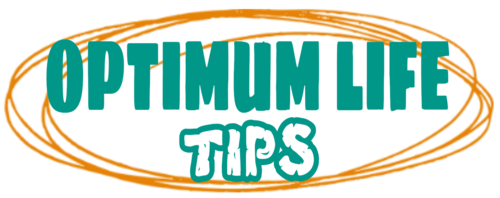Good organizational skills are essential for success in the workplace. They encompass effective organizational abilities, strong time management skills, efficient planning skills, effective task prioritization, excellent project management skills, and more. Highly organized individuals with meticulous attention to detail and the ability to multitask effectively are highly sought after by employers. By mastering good organization skills, you can enhance your productivity and achieve professional success efficiently.
Key Takeaways:
- Good organization skills are crucial for success in the workplace.
- They include effective organizational abilities, strong time management skills, and excellent project management skills.
- Meticulous attention to detail and proficient multitasking are also important aspects of good organization skills.
- Mastering good organization skills can enhance productivity and contribute to professional success.
- Highly organized individuals are highly sought after by employers.
What Are Organizational Skills?
Organizational skills encompass a set of soft skills that are essential for success in the workplace. These skills enable individuals to effectively manage expectations, stay on top of tasks, and deliver results in a timely fashion. By mastering organizational skills, individuals can effectively manage their time, effort, and resources, leading to increased productivity and efficiency.
One crucial aspect of organizational skills is the ability to manage expectations. This involves setting clear goals and objectives, communicating them effectively, and ensuring that all stakeholders have a clear understanding of what needs to be accomplished. By managing expectations, individuals can avoid misunderstandings and ensure that everyone involved is on the same page.
Staying on top of tasks is another key component of organizational skills. This requires individuals to prioritize their workload, break tasks down into manageable steps, and set realistic deadlines. By effectively managing their tasks, individuals can prevent unnecessary stress and ensure that projects are completed in a timely manner.
Delivering results in a timely fashion is a critical aspect of organizational skills. It involves a combination of time management, efficient planning, and effective execution. By staying organized and focused, individuals can meet deadlines and exceed expectations.
Collaboration is an essential part of organizational skills. It involves working effectively with others, coordinating tasks, and maintaining open lines of communication. Collaboration fosters teamwork, enhances problem-solving abilities, and enables the smooth execution of projects and initiatives.
To aid in the coordination and management of tasks, individuals often rely on project management tools. These tools provide a centralized platform for organizing and tracking tasks, deadlines, and project milestones. By utilizing project management tools, individuals can streamline their workflow, improve efficiency, and ensure that projects are completed successfully.
To summarize, organizational skills are a set of soft skills that involve managing expectations, staying on top of tasks, delivering results in a timely fashion, collaborating effectively, and utilizing project management tools. By developing and honing these skills, individuals can enhance their productivity, efficiency, and overall success in the workplace.
The Importance of Effective Organization
Effective organization plays a vital role in various aspects of our lives, including the workplace. It brings numerous benefits that contribute to our overall success and well-being. When we prioritize and streamline our tasks and resources, we can save time, save money, produce high-quality work, and become highly valued employees. Additionally, effective organization enhances our mental fitness and fosters trust and professionalism.
The Value of Time and Money
By implementing effective organizational strategies, we can save valuable time and optimize our efficiency in the workplace. When we are organized, we spend less time searching for resources, managing clutter, and dealing with unnecessary distractions. This allows us to focus on our tasks and complete them in a more timely and productive manner.
Moreover, effective organization helps us save money by minimizing costs associated with inefficiencies and mistakes. When we have a clear plan and structure in place, we can avoid unnecessary expenses, reduce waste, and optimize resource allocation.
Delivering High-Quality Work
Organizational skills are essential for producing high-quality work. When we are organized, we have a systematic approach to our tasks, ensuring that we meet deadlines, pay attention to detail, and deliver exceptional results. Our ability to effectively prioritize tasks and manage our workload allows us to maintain a high level of quality and meet or exceed expectations.
Becoming a High-Value Employee
Employers highly value individuals with strong organizational skills. When we demonstrate efficiency and productivity through effective organization, we become assets to our organizations. Our ability to manage multiple tasks, meet deadlines, and produce high-quality work makes us reliable and valuable employees.
Enhancing Mental Fitness
Organization contributes to our mental fitness and overall well-being. When our tasks, resources, and responsibilities are well-organized, we experience reduced stress levels and increased clarity of mind. This leads to improved focus, creativity, and problem-solving abilities.
Building Trust and Professionalism
Good organization skills contribute to the perception of trustworthiness and professionalism. When we are organized, we demonstrate reliability, consistency, and attention to detail. Colleagues, clients, and superiors view us as dependable professionals who can be trusted to deliver results and uphold high standards.
“Good organization isn’t about perfection; it’s about efficiency, reducing stress and clutter, saving time and money, and improving your overall quality of life.” – Christina Scalise
Overall, effective organization is invaluable in both our personal and professional lives. It allows us to save time and money, produce high-quality work, become highly valued employees, maintain mental fitness, and foster trust and professionalism. By continuously honing our organizational skills, we can unlock our full potential and thrive in all areas of life.
| Benefit | Description |
|---|---|
| Save Time | Reduces time spent searching for resources and managing clutter |
| Save Money | Minimizes costs associated with inefficiencies and mistakes |
| High-Quality Work | Enables consistent delivery of exceptional results |
| High-Value Employee | Makes individuals reliable and valuable assets to organizations |
| Mental Fitness | Contributes to reduced stress levels and improved focus |
| Trust and Professionalism | Builds a reputation for reliability and high standards |
Types of Organizational Skills
Organizational skills can be categorized into two main types: internal and external skills. Each type plays a crucial role in enhancing productivity and efficiency in the workplace.
Internal Organizational Skills
Internal organizational skills refer to the cognitive abilities that individuals possess to effectively manage complex tasks and make well-informed decisions. These skills include:
- Creative thinking: Encourages innovative problem-solving, enabling individuals to come up with unique solutions and approaches.
- Strategic thinking: Involves analyzing situations from a broader perspective and making long-term plans to achieve objectives.
- Mental fitness: Developing mental resilience and agility to adapt to changing circumstances and handle pressure smoothly.
External Organizational Skills
External organizational skills, on the other hand, focus on how individuals collaborate and coordinate with others to accomplish tasks efficiently. These skills include:
- Prioritization: The ability to determine the importance and urgency of tasks, ensuring that the most critical projects receive immediate attention.
- Documentation: Skillful management of important information by documenting it accurately and storing it appropriately for easy retrieval.
- Workflow management: Effectively managing workflows to ensure smooth and seamless task progression among team members.
- Teamwork: The capacity to work harmoniously with colleagues, leveraging diverse skills and perspectives to achieve common goals.
By honing both internal and external organizational skills, individuals can excel in their roles, contribute effectively to team dynamics, and drive successful outcomes.
10 Key Organizational Skills Examples to Grow Your Career
Developing and cultivating key organizational skills is vital for excelling in your career. These skills enable you to effectively manage tasks, projects, and relationships, leading to increased productivity and success. Here are 10 examples of essential organizational skills that can help you grow your career:
- Physical Organization: The ability to keep your workspace tidy and organized promotes efficiency and enables easy access to resources and materials.
- Goal Setting: Setting clear and actionable goals helps you stay focused, motivated, and accountable, driving progress and achievement.
- Prioritization Skills: Effectively determining the importance and urgency of tasks allows you to manage your time and resources efficiently.
- Decision Making: Making informed and timely decisions based on thorough analysis and critical thinking enhances productivity and drives progress.
- Strategic Thinking and Planning: Developing a strategic mindset and creating well-thought-out plans enables you to anticipate challenges, identify opportunities, and achieve long-term success.
- Collaboration: Working effectively with others, fostering teamwork, and leveraging diverse perspectives and skills lead to innovative solutions and successful outcomes.
- Effective Communication: Clear and concise communication helps in conveying ideas, understanding expectations, and building strong working relationships.
- Time Management: Efficiently managing your time, setting realistic deadlines, and avoiding procrastination lead to increased productivity and reduced stress.
- Self-Motivation: Cultivating self-motivation and a positive mindset allows you to stay focused, overcome challenges, and consistently achieve your goals.
- Self-Management: Taking personal responsibility for your actions, emotions, and overall well-being enables you to adapt, learn, and thrive in professional environments.
Mastering these organizational skills will provide you with a strong foundation for success and open doors to professional growth. Remember, continually honing and applying these skills in your daily work will greatly contribute to your career advancement.
How to Amplify Your Organizational Skills at Work
To enhance and showcase your organizational skills in the workplace, it’s essential to take initiative and proactively seek opportunities to grow and learn. By volunteering for projects, attending workshops, and utilizing digital tools, you can amplify your organizational abilities and stand out as a highly efficient and effective team member.
1. Project Volunteer
One way to demonstrate your organizational skills is by volunteering for projects. Taking the initiative to offer your help shows your willingness to go above and beyond, while also providing an opportunity to showcase your ability to manage tasks, timelines, and resources effectively.
2. Seek Opportunities to Learn New Skills
Embrace opportunities to expand your skill set and stay current in your industry. Attend workshops, training sessions, or conferences that focus on organizational strategies, time management, and project coordination. Learning new skills will not only improve your organizational abilities but also make you a valuable asset to your team.
3. Time Blocking and Prioritization
Implement time blocking techniques to manage your tasks more efficiently. Prioritize your responsibilities by identifying urgent and important tasks and allocating dedicated time blocks for their completion. This approach helps you stay focused, meet deadlines, and prevent unnecessary stress.
4. Implement Organization Systems
Develop organization systems that work best for you and your workflow. This might include using tools like project management software, digital calendars, or to-do lists. By implementing consistent organizational methods, you can streamline your work processes and ensure that important tasks and deadlines are never overlooked.
5. Utilize Digital Tools
Maximize the benefits of digital tools to enhance your organizational skills. Tools such as task management apps, collaboration platforms, and file-sharing systems can help you stay organized, collaborate seamlessly with team members, and keep important information accessible.
| Benefit | Examples of Digital Tools |
|---|---|
| Task Management | Trello, Asana, Monday.com |
| Collaboration | Slack, Microsoft Teams, Google Workspace |
| File Sharing | Dropbox, Google Drive, OneDrive |
“The use of digital tools can greatly enhance your organizational skills, providing you with a centralized platform to manage tasks, streamline communication, and access important information anytime, anywhere.”
By incorporating these strategies into your daily work routine, you can amplify your organizational skills, improve productivity, and excel in your role. Remember, organizational skills are not just about staying organized; they are about taking ownership of your tasks, managing your time effectively, and contributing to the success of your team and organization.
How to Add Organizational Skills to Your Resume
When updating your resume, it’s crucial to effectively highlight your organizational skills. Simply listing these skills may not effectively convey their importance and value. Instead, focus on providing specific examples that demonstrate how you have utilized your organizational abilities in previous roles. By doing so, you can showcase your practical experience and make a strong impression on potential employers.
“I implemented an organized filing system which resulted in a 30% decrease in time spent searching for documents.”
1. Tailor your resume to job descriptions
One way to emphasize your organizational skills is by customizing your resume to match the specific job descriptions you’re applying for. Carefully review the requirements and responsibilities outlined in the job posting, and incorporate relevant keywords and phrases into your resume. This will demonstrate to employers that you have the specific skills they are looking for.
2. Highlight measurable achievements
In addition to mentioning your organizational skills, it’s important to emphasize measurable achievements that demonstrate the impact of your organizational abilities. For example, instead of simply stating that you have strong time management skills, provide concrete examples of how your efficient planning and task prioritization led to measurable results, such as meeting project deadlines or increasing team productivity.
3. Provide specific examples
When describing your organizational skills, be sure to provide specific examples of how you have applied them in your previous roles. This could include projects you successfully managed, events you coordinated, or systems you implemented to streamline processes. By providing specific examples, you paint a clear picture of your capabilities and give employers confidence in your ability to contribute to their organization.
4. Use a clean and organized resume format
Beyond the content, the format of your resume should also reflect your organizational skills. Use a clean and organized layout that is easy to read and navigate. Use headings, bullet points, and proper formatting to visually present your skills and achievements. This will show your attention to detail and ability to present information in a clear and concise manner.
An example of how to incorporate organizational skills in your resume:
| Experience | Organizational Skills | Measurable Achievements |
|---|---|---|
| Project Manager, XYZ Company | Effective project managementStrategic planningEfficient task prioritization | Led cross-functional team to successfully complete a complex project within a tight deadlineImplemented a project management tool resulting in a 25% increase in team collaboration and efficiencyAchieved 100% client satisfaction by delivering projects on time and within budget |
| Administrative Assistant, ABC Company | Effective time managementDetail-oriented organizationWorkflow management | Developed an efficient filing system, reducing document retrieval time by 40%Coordinated complex travel arrangements for senior executives with meticulous attention to detailStreamlined administrative processes, resulting in a 20% increase in overall office efficiency |
By incorporating specific examples and measurable achievements that highlight your organizational skills, you can grab the attention of recruiters and hiring managers, increasing your chances of landing your desired job.
How to Highlight Your Organizational Skills in an Interview
During an interview, it is crucial to effectively showcase your organizational skills to impress potential employers. To do so, provide concrete examples of how you have utilized these skills in your previous positions. By sharing specific instances that demonstrate your problem-solving, task management, teamwork, and communication abilities, you can effectively convey your organizational proficiency. Additionally, emphasize your proactive approach to staying organized and your ability to adapt to changing circumstances.
“In my previous role as a project manager, I successfully managed a team of diverse individuals by employing strong collaboration and communication skills. Through effective task delegation and clear instructions, I ensured efficient workflow management, resulting in the timely completion of projects.”
When discussing your organizational skills, consider the following points:
Showcasing Problem-Solving:
- Provide examples of how you have approached and resolved complex problems
- Highlight your ability to think critically and make informed decisions
Highlighting Task Management:
- Discuss how you prioritize tasks and meet deadlines effectively
- Show your proficiency in managing multiple projects simultaneously
Emphasizing Teamwork:
- Share instances where you successfully collaborated with colleagues
- Describe your role in fostering a positive and productive team environment
Emphasizing Communication:
- Discuss your ability to clearly articulate ideas and information
- Show how you actively listen and adapt your communication style to different stakeholders
Highlighting a Proactive Approach:
- Explain how you develop efficient organization systems and streamline processes
- Share your proactive mindset by providing examples of anticipating challenges and implementing preventive measures
By effectively highlighting your organizational skills in an interview, you can demonstrate your value to prospective employers and increase your chances of securing the job.
How to Improve Your Organizational Skills
Improving your organizational skills is an ongoing process that can significantly enhance your efficiency and productivity. Here are some tips to help you develop and strengthen your organizational skills:
1. Time Management
Effective time management is crucial for staying organized. Utilize tools such as calendars, to-do lists, and task management apps to schedule and prioritize your tasks. Set realistic deadlines and allocate dedicated time slots for each activity.
2. Planning and Prioritization
Create a structured plan to outline your goals and break them down into actionable steps. Prioritize tasks based on their importance and deadlines. This approach ensures that you focus on high-priority tasks and complete them in a timely manner.
3. Decluttering and Organizing
Keep your physical and digital spaces clean and clutter-free. Regularly declutter your workspace, files, and folders, removing any unnecessary items or documents. Develop a systematic approach to organizing your belongings to easily locate and access them when needed.
4. Effective Communication
Clear and concise communication is essential for effective organization. Enhance your communication skills, both written and verbal, to ensure that you convey your ideas, expectations, and progress effectively. Practice active listening and seek clarification when needed.
5. Self-Reflection and Self-Management
Regularly reflect on your organizational habits and assess areas for improvement. Analyze your strengths and weaknesses, and develop strategies to address any shortcomings. Take ownership of your tasks, responsibilities, and timelines to maintain control over your work.
6. Seek Feedback
Proactively seek feedback from colleagues, supervisors, or mentors. Their insights can provide valuable perspectives on your organizational skills and identify areas where you can improve. Use this feedback constructively to refine your organizational techniques.
“Improving your organizational skills is not a one-time task but an ongoing journey of self-improvement.” – Anonymous
By implementing these strategies and continually refining your organizational skills, you can become a highly efficient and well-organized professional.
| Benefits of Improved Organizational Skills | Examples |
|---|---|
| Enhanced productivity and efficiency | Completing tasks within deadlines, meeting targets consistently |
| Reduced stress and better work-life balance | Being able to manage workloads effectively and dedicating time to personal life |
| Improved decision-making and problem-solving | Analyzing situations comprehensively and making informed choices |
| Greater focus and attention to detail | Reducing errors and producing high-quality work |
| Enhanced collaboration and teamwork | Coordinating tasks, sharing information, and contributing effectively to team projects |
Conclusion
Good organization skills are essential for achieving success in the workplace and advancing your career. By continuously working to improve and enhance your organizational skills, you can significantly improve productivity, increase efficiency, and become a highly organized and valuable professional.
Investing time and effort into developing these skills is crucial. By honing your organization skills, you can streamline your workflow, effectively manage your tasks, and ensure that you meet deadlines consistently. This level of efficiency and productivity will set you apart from your peers and make you a valuable asset to any organization.
Remember, improving your organization skills is an ongoing process. Practice effective time management techniques, develop strong planning abilities, and strive to maintain a clutter-free workspace. Additionally, prioritize communication and collaboration, as these skills are crucial for effective teamwork and project management.
In conclusion, by continuously improving your organization skills, you can position yourself for success in your workplace and advance your career. Embrace the opportunity to enhance your productivity and efficiency and reap the rewards of a successful and fulfilling professional journey.
FAQ
What are good organization skills?
Good organization skills encompass effective organizational abilities, strong time management skills, efficient planning skills, effective task prioritization, excellent project management skills, meticulous attention to detail, and proficient multitasking.
Why are organizational skills important?
Organizational skills are important because they save time and money, improve work productivity and quality, contribute to mental fitness and professionalism, and make individuals reliable and trustworthy.
What are the types of organizational skills?
Organizational skills can be categorized into internal skills, which include creative thinking, strategic thinking, and mental fitness, and external skills, which involve prioritizing tasks, documenting information, managing workflows, and collaborating effectively as part of a team.
What are some examples of key organizational skills?
Examples of key organizational skills include physical organization, goal setting, prioritization skills, decision making, strategic thinking and planning, collaboration, effective communication, time management, self-motivation, and self-management.
How can I amplify my organizational skills at work?
To amplify your organizational skills at work, you can take initiative in projects, proactively seek opportunities to learn new skills, attend workshops, implement organization systems, utilize digital tools, and prioritize tasks through time blocking.
How can I highlight my organizational skills in my resume?
Highlight your organizational skills in your resume by providing specific examples of how you have utilized these skills, tailoring your resume with relevant keywords and phrases, and emphasizing measurable achievements that demonstrate your organizational abilities.
How can I showcase my organizational skills in an interview?
Showcase your organizational skills in an interview by providing concrete examples of how you have utilized them in previous positions, discussing instances of problem-solving, effective task management, teamwork, and communication, and highlighting your proactive approach to staying organized and adapting to change.
How can I improve my organizational skills?
To improve your organizational skills, you can work on time management, planning, decluttering your workspace, prioritization, effective communication, self-reflection, and seeking feedback from colleagues or supervisors.





